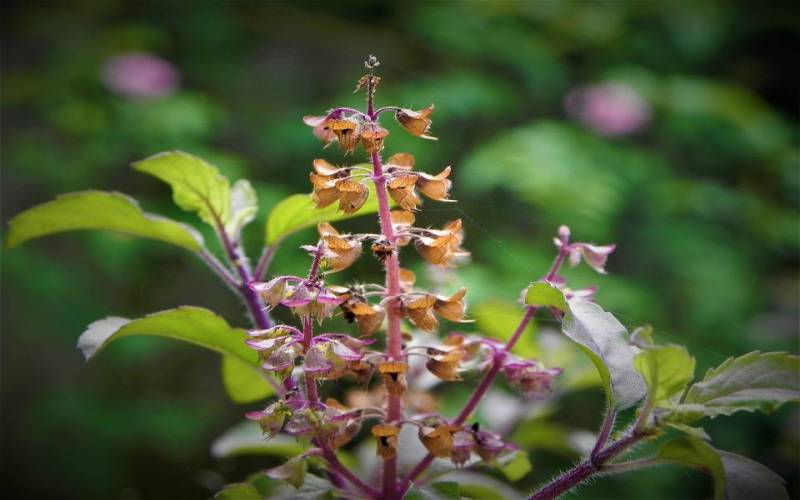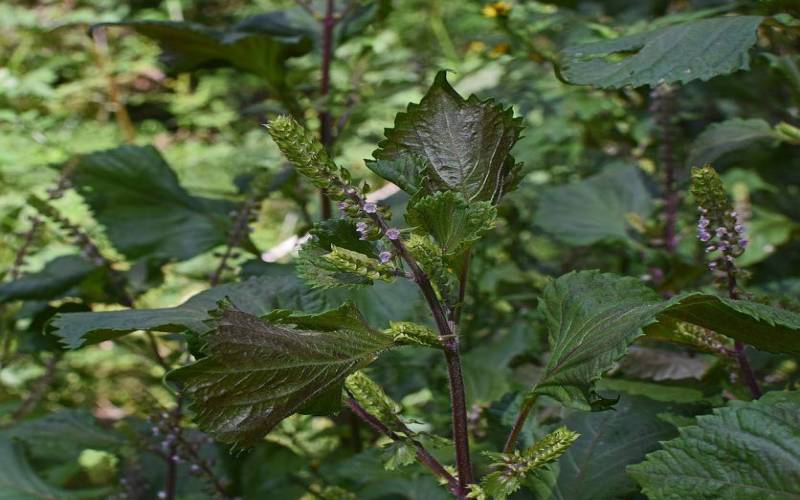Sacred Tulsi Plant - Holy Basil, India
Tulsi, Tulasi, or Vrinda (Holy Basil) is a Hindu sacred plant. It is recognised by Hindus as an earthly manifestation of the goddess Tulsi, who is considered the avatar of Lakshmi and hence Vishnu's consort. She marries Jalandhara in the story. Offering its leaves to Vishnu and his avatars like Krishna and Vithoba is advised in ceremonial worship.
Tulsi plants are commonly found in front of or near Hindu homes, often in specific containers or a brick structure known as Tulsi Vrindavan. Tulsi is traditionally planted in the centre of a Hindu house's central courtyard. The plant is grown for both religious and medicinal uses, as well as for its essential oil. In Hinduism, tree worship is prevalent, but the Tulsi plant is considered the holiest of all plants. The Tulsi plant is thought to represent a link between heaven and earth.
The Tulsi herb is a source of household religious devotion, especially among women, and is known as the "women's deity" and "a symbol of wifehood and motherhood." It is also known as "the central sectarian symbol of Hinduism," and Vaishnavites regard it as "the manifestation of god in the plant kingdom."




